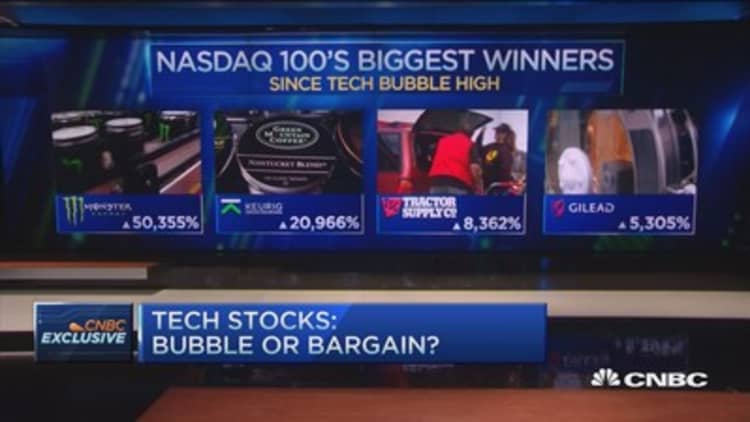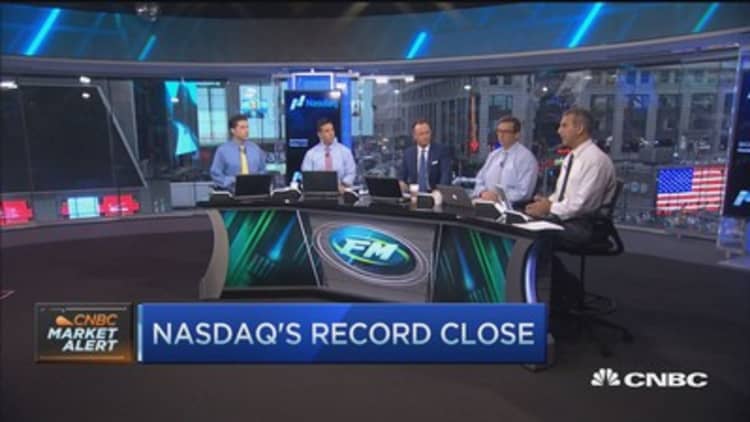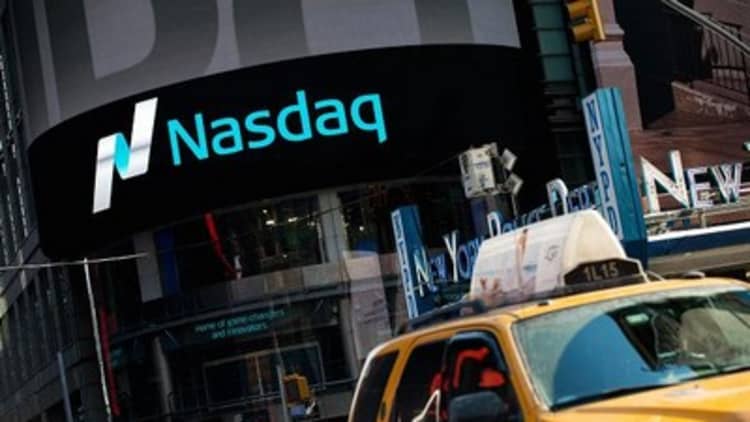


The Nasdaq regained its tech-bubble high Thursday on the wings of a Fed-induced rally, but the market is likely to remain volatile even if other indexes also reach new heights.
"This a 15-year-old high. When you test levels like that rarely have I seen one sustainably and appreciably broken," said John Kosar, chief strategist at Asbury Research. "Markets have a memory, and when you get to old levels, people like to buy off of old lows. People like to sell off old highs."
The Nasdaq, rallying with the broader market, gained more than 1.2 percent, and pushed to a new high several points above 5132.52, the intraday high it reached in the peak of the tech bubble in March 2000.
On Wednesday Fed Chair Janet Yellen reassured markets that the Fed is not yet ready to raise rates and that it does not see the economic fortitude to do so. But Fed officials, in their statement and forecasts, signaled they expect a better economy and that they could hike rates one or two times this year.
Greece also was a factor, as traders were generally optimistic it would reach a deal with its creditors.
"I'm very concerned we're going to have some sort of a corrective move here. Basically, what drives those is everybody who has access to a price chart, which is everybody, could see this as a good place to take profits off the table," said Kosar.
But Dan Greenhaus, chief global strategist at BTIG, said with the Fed still unclear on when it will boost rates, the market's bias is to go higher. He said unanswered are questions on timing of the first rate hike and how many increases there could be this year.
"I don't think the (Fed) statement or the press conference resolved any of the issues that investors are wrestling with," he said.
Stocks have been stuck in a sideways push and pull, as traders worry about the potential impact of Fed rate hikes, a Greek default, and possibly sluggish earnings.
The Nasdaq has outperformed the other indexes, benefiting from gains in technology and biotechnology, but it is an entirely different market than it was at the turn of the century.
Back then there were many stocks with P/Es in the triple digits. Yahoo's valuation, for instance, was even higher, with a price-to-earnings multiple of 1,780, compared with close to a 6 P/E today. The highest P/E on the Nasdaq currently is Autodesk at 174, versus its 130 P/E in 2000.
The S&P 500 on Thursday was up nearly 1 percent, but was still a good 15 points below its all time high of 2,134. The Nasdaq in the past year has gained 17 percent, more than double the 8 percent gain of the S&P. The Dow was about 225 points below its high of 18,351 Thursday, but the Russell 2000, like the Nasdaq has broken into new territory.
What to watch
"Nothing has changed in my opinion. I think this is a two-way tape. Some stocks are working. Some aren't. Some sectors are working. Some aren't," said Paul LaRosa, chief market technician at Maxim Group.
LaRosa said the Fed is going to raise rates and the market will have to adjust to it, and Greece hangs in the balance as a possible mine field for markets if it defaults.
"While we may break out, and the other two indices could fall in line, I don't see right now the predictability for a major upward move. We still feel we'll be in a choppy, sideways and volatile market for now. I don't think these big swings are done with. It wouldn't shock me if we're down 200 points tomorrow," he said.
LaRosa said higher rates could hurt earnings and could also stall out the surge in corporate debt issuance that has helped boost share buybacks.
"So if they stop buying back stock, what happens? the market goes down. ... All of these pitfalls are on people's minds which is why you're seeing this two-way tape. It has to be resolved one way or other. We had the Fed meeting, and rates are going to tick higher. People have to plan for that reality," LaRosa said.


